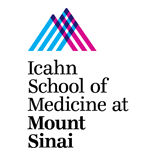Request Demo
Last update 08 May 2025
HDAC3 x SIAH2
Last update 08 May 2025
Related
1
Drugs associated with HDAC3 x SIAH2Target |
Mechanism HDAC3 inhibitors [+1] |
Active Org. |
Originator Org. |
Active Indication |
Inactive Indication- |
Drug Highest PhasePreclinical |
First Approval Ctry. / Loc.- |
First Approval Date20 Jan 1800 |
100 Clinical Results associated with HDAC3 x SIAH2
Login to view more data
100 Translational Medicine associated with HDAC3 x SIAH2
Login to view more data
0 Patents (Medical) associated with HDAC3 x SIAH2
Login to view more data
4
Literatures (Medical) associated with HDAC3 x SIAH227 Dec 2022·Cancer Research Communications
Proteasome Inhibitors Silence Oncogenes in Multiple Myeloma through Localized Histone Deacetylase 3 Stabilization and Chromatin Condensation
Article
Author: Maneix, Laure ; Mistry, Ragini M. ; Lulla, Premal ; Moree, Shannon E. ; Stossi, Fabio ; Iakova, Polina ; Catic, André ; Sahin, Ergun ; Sun, Zheng ; Yellapragada, Sarvari V. ; Hsu, Joanne I.
01 Jun 2015·Molecules and CellsQ3 · BIOLOGY
miR-335 Targets SIAH2 and Confers Sensitivity to Anti-Cancer Drugs by Increasing the Expression of HDAC3
Q3 · BIOLOGY
Article
Author: Park, Deokbum ; Kim, Hyuna ; Jeoung, Dooil ; Kim, Youngmi
01 Sep 2010·Biochemical and Biophysical Research CommunicationsQ3 · BIOLOGY
The Ski protein negatively regulates Siah2-mediated HDAC3 degradation
Q3 · BIOLOGY
Article
Author: Nobuhide Ueki ; Hong Ling Zhao ; Michael J. Hayman
Analysis
Perform a panoramic analysis of this field.
login
or

AI Agents Built for Biopharma Breakthroughs
Accelerate discovery. Empower decisions. Transform outcomes.
Get started for free today!
Accelerate Strategic R&D decision making with Synapse, PatSnap’s AI-powered Connected Innovation Intelligence Platform Built for Life Sciences Professionals.
Start your data trial now!
Synapse data is also accessible to external entities via APIs or data packages. Empower better decisions with the latest in pharmaceutical intelligence.
Bio
Bio Sequences Search & Analysis
Sign up for free
Chemical
Chemical Structures Search & Analysis
Sign up for free

